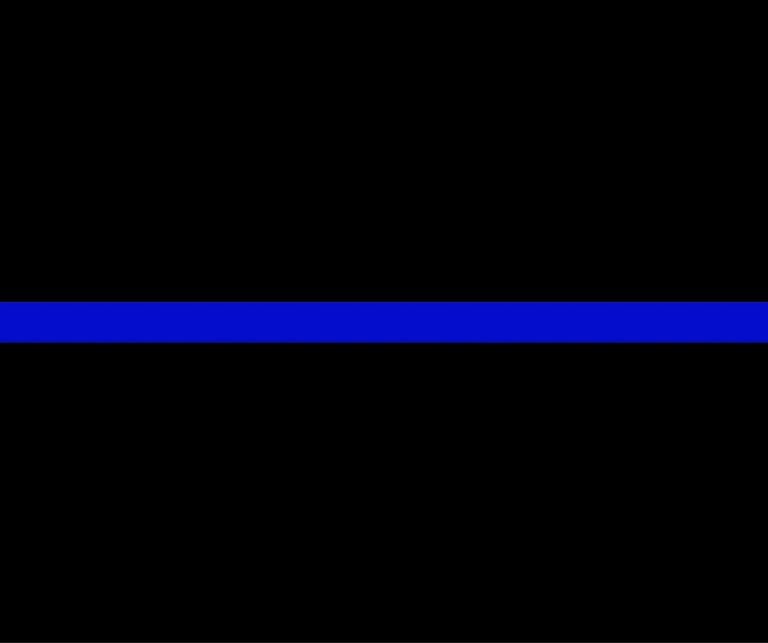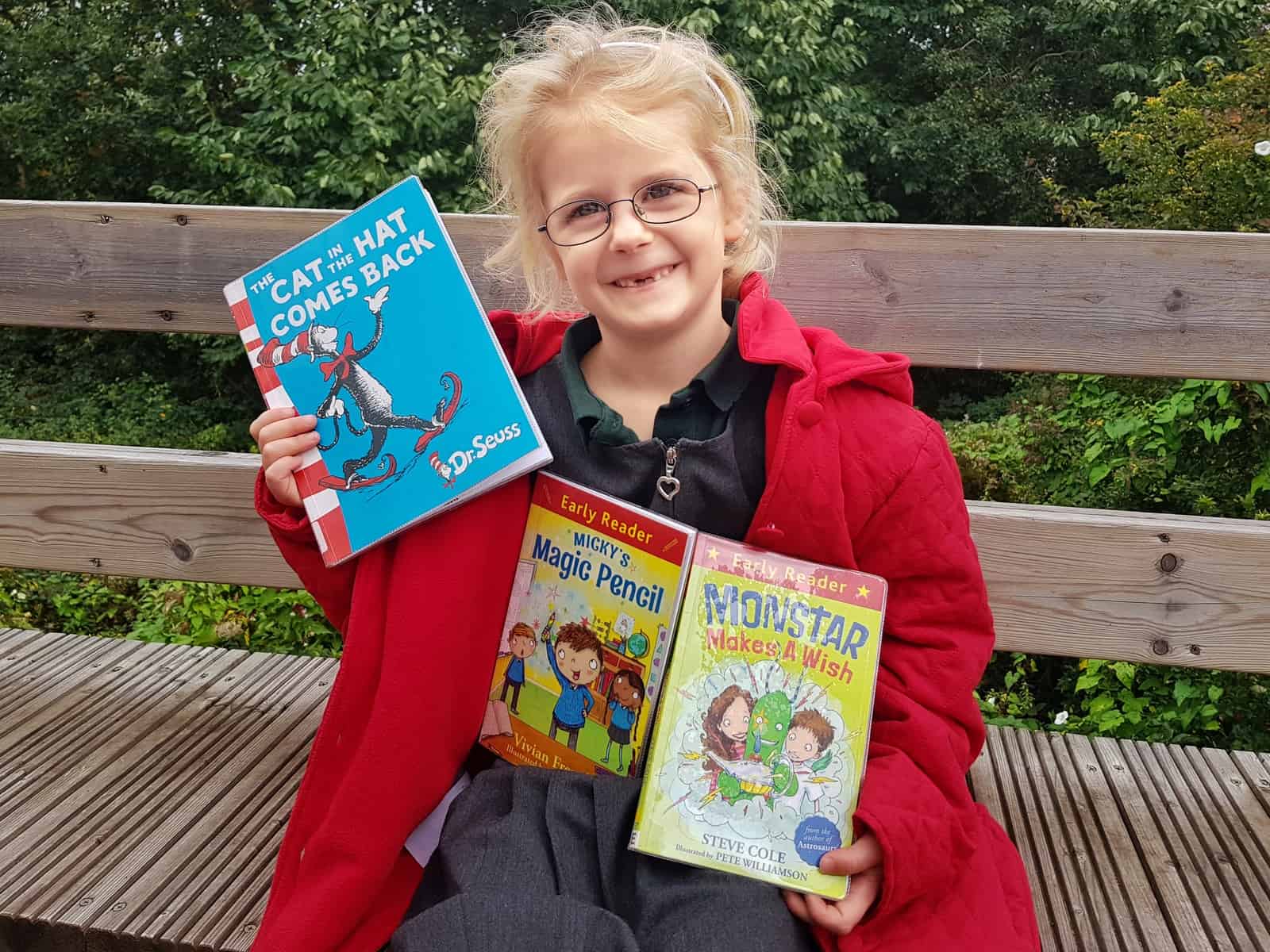The day we asked Google whether babies could have dentures
I’m not one to shy away from admitting my parenting fails. And let’s face it, there have been a few. But perhaps one of our most ridiculous moments as parents came when my youngest daughter was around 11 months old and still showing absolutely no signs of teething.
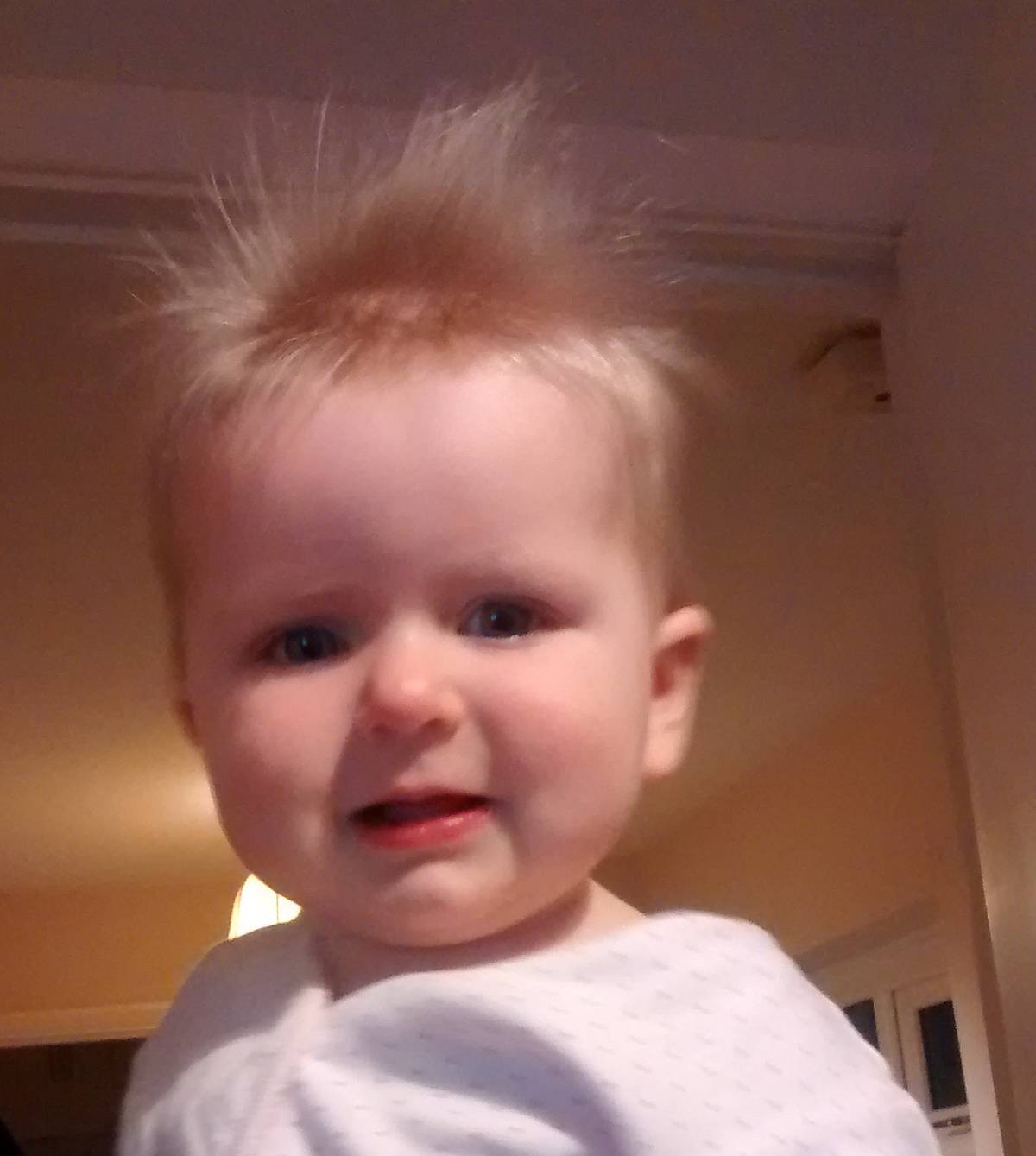
Can babies have dentures?
In our defence, our eldest daughter cut her first tooth at around three months old. I remember being unsure as to what was wrong with her. She seemed so unsettled and her little face was hot. But she was so tiny, it didn’t even cross my mind that she could be teething. Then as soon as that tiny white dot appeared in her mouth, it all made sense.
Once her first tooth had appeared, it wasn’t long until the second one came. By the time she was a year old, she had a good proportion of her teeth in place. And that was it, we had it sussed. So when daughter number two came along, we were fully aware that teething could start at a very young age. It wasn’t long before we put every ailment down to teething. If she was grumpy, snotty, sleeping badly or just a bit tired, we were sure that first tooth was about to appear.
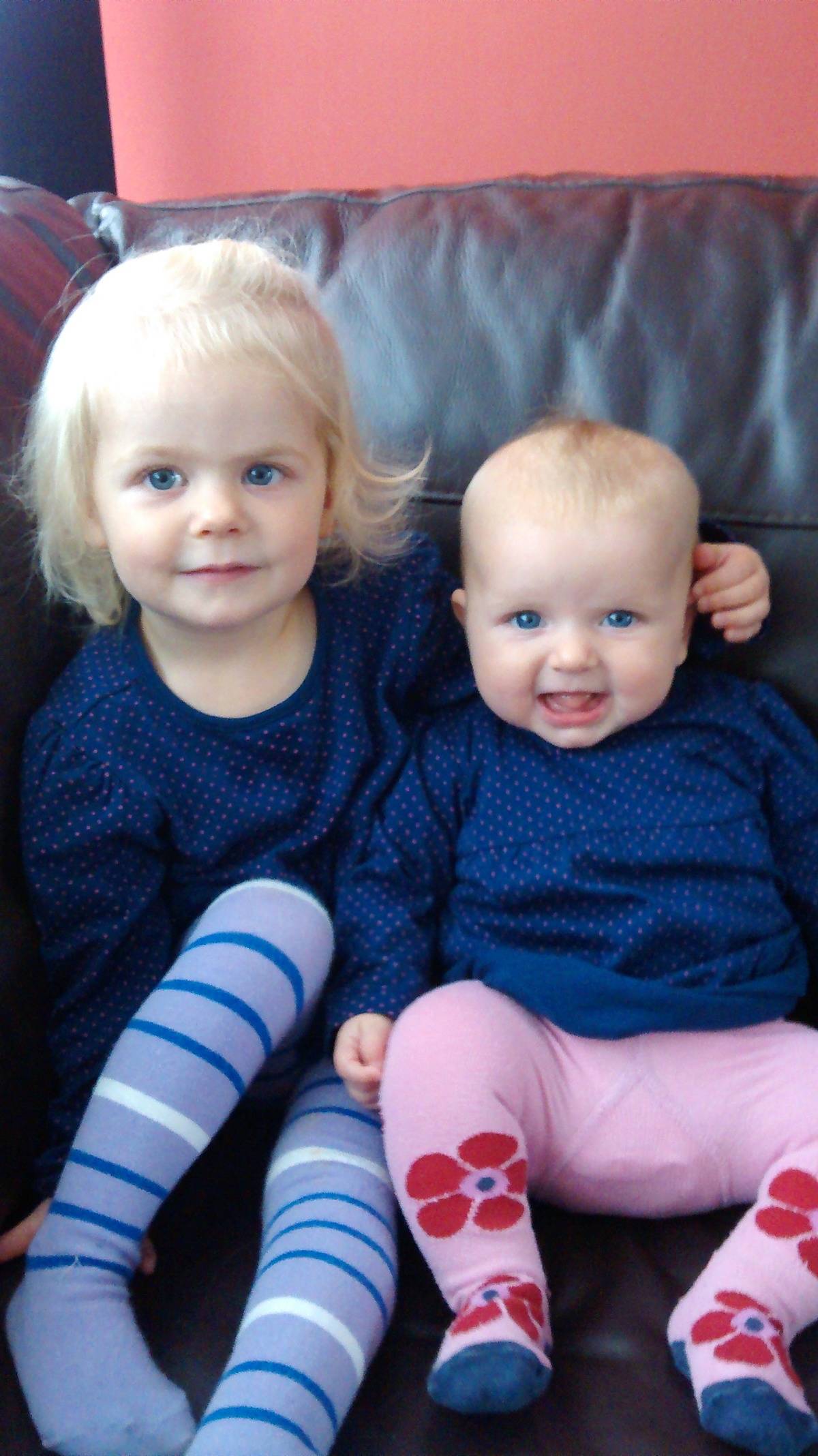
But she hit four months old and there was no sign of a tooth. Then she was five months, six months, seven months. Still nothing. By the time she was eight months old, it all started to seem a bit odd. Weaning was more problematic because there’s only so much you can chew when you’ve only got gums. Every now and then my husband and I would chat about how strange it was and then we’d move on.
The months continued to pass and with her first birthday imminent, she was still gummy. I distinctly remember sitting out on the decking with my husband discussing the by now very real dilemma. What happens if our baby never gets any teeth? He wondered if we should take her to the doctors. Or the dentist maybe? Before we knew it we both had our phones out. I wonder if we were the first people ever to ask Google if our baby could have dentures? The all-knowing search engine didn’t seem to have the answer.
When the teeth finally arrive
Needless to say, the teeth did eventually turn up without the help of a dentist. That gummy baby is now nearly three years old, with a mouthful of beautiful teeth.
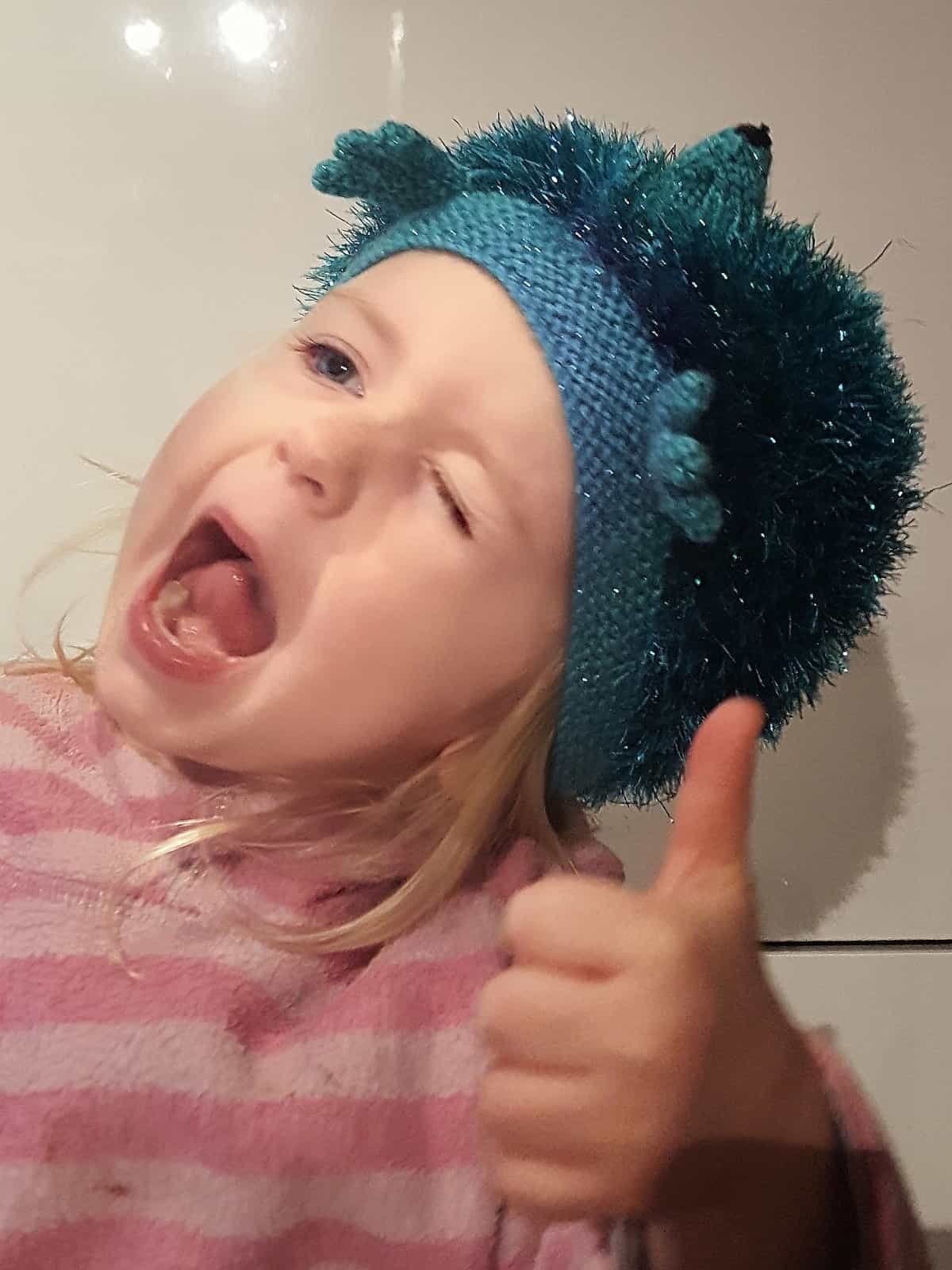
In research recently conducted by Nelsons, they have found that 39% of parents say that teething is the most distressing ailment for babies. I wonder if any of the other 61% were parents like us who found lack of teething to be the distressing part!
There are various ways to relieve the symptoms of teething. Sadly, the same thing won’t work for every child. Many children find relief from chewing on something cold or a teething toy. We found that Nelsons Teetha Teething Granules helped both of our children. This is a homeopathic product that relieves the symptoms caused by teething including red cheeks, dribbling and sore gums. You can buy Teetha teething granules at Holland and Barrett, Boots and Lloyds pharmacy, as well as independent health, pharmacy and grocery stores.
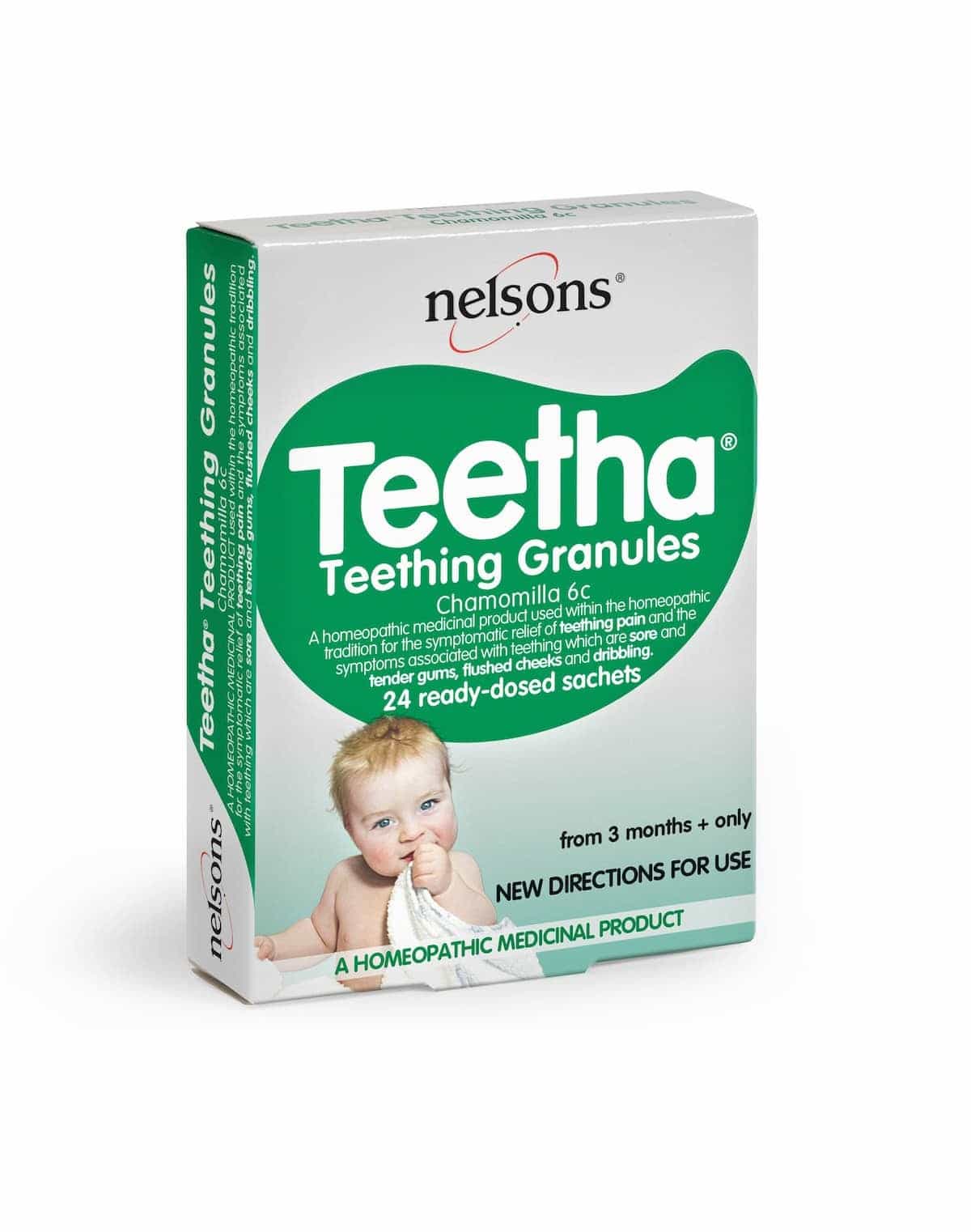
How to care for tiny teeth
Nelsons have put together some tips on tooth care from the moment that first tooth (finally) arrives. It’s fabulous advice and I wish I’d had more information about teething and tooth care when mine were small.
- You can brush baby’s teeth straight away when they first appear. It doesn’t matter if you don’t brush them much to start with, just get them used to a daily routine of brushing.
- Let babies watch you brush your teeth. They might not like you brushing theirs at first so keep trying, even make a game of it.
- Up to the age of three years old, children only need a tiny amount of toothpaste. From then until age six, they need a pea-sized amount.
- To brush the teeth of a baby, it is easiest to sit them down on your lap and rest their head on your chest. For older children, they can stand in front of you and you can tilt their head up towards you.
- Brush children’s teeth in little circles. You should brush every surface and make sure children spit out the toothpaste. Nelsons say that the benefit derived from fluoride will be reduced if you rinse their mouth with water afterwards.
- You can gradually build up to thoroughly brushing a child’s teeth and covering every surface. Doing it before bed and at one other time during the day will make it part of your routine.
- Supervise brushing to ensure the right amount of toothpaste is used and that they’re not eating it.
- Children will probably need some help brushing their teeth until the age of around seven years old.
Do you have any other tips for looking after children’s teeth? I would ask for reassurance from anyone else who has asked Google whether their baby could have dentures. But I suspect I’d be waiting a long time.


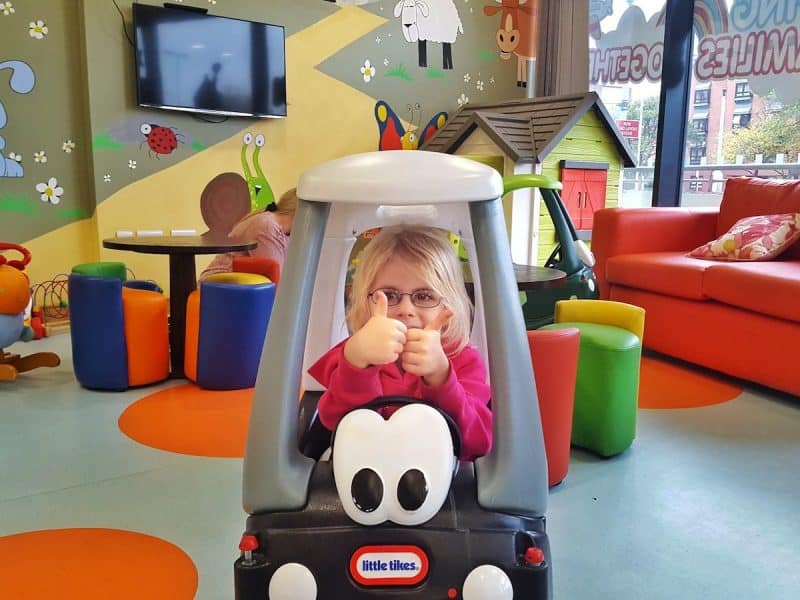
![[AD] Planning for the future with Scottish Widows](https://plutoniumsox.com/wp-content/uploads/2019/03/20190311_155716-01.jpeg)
